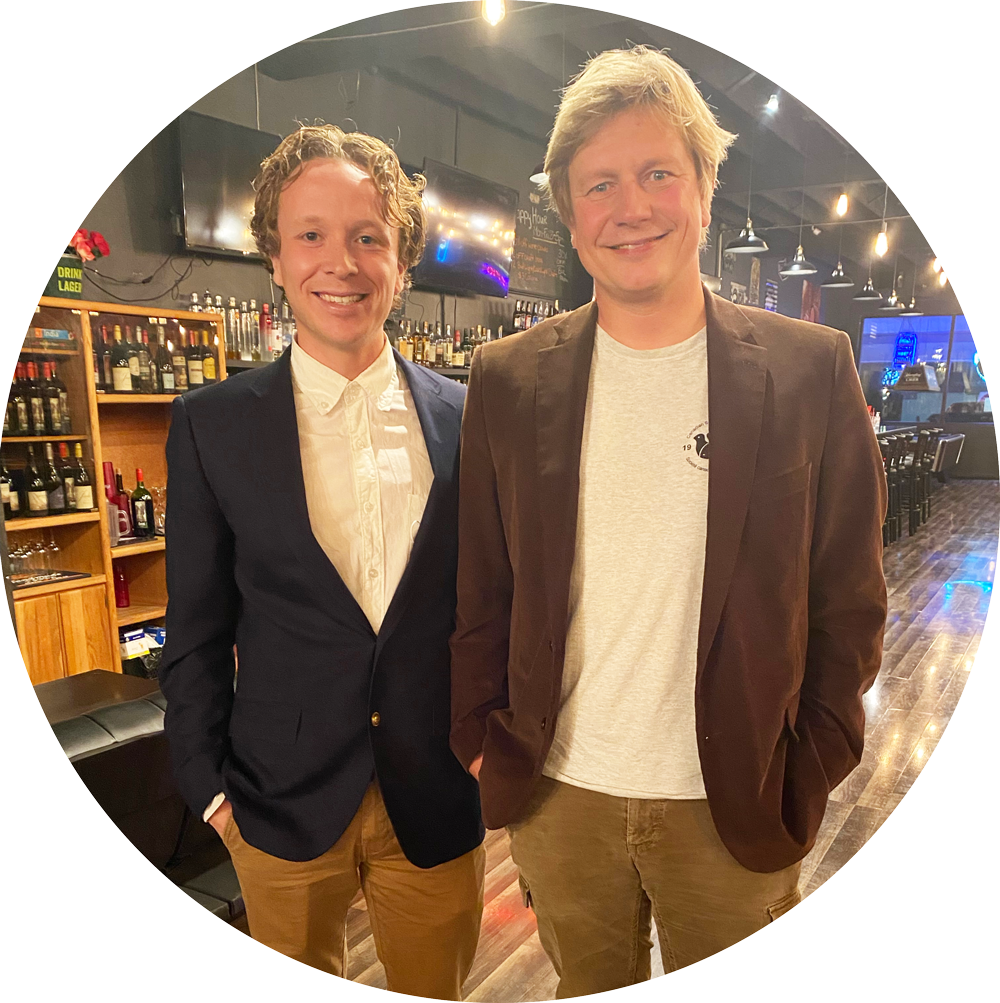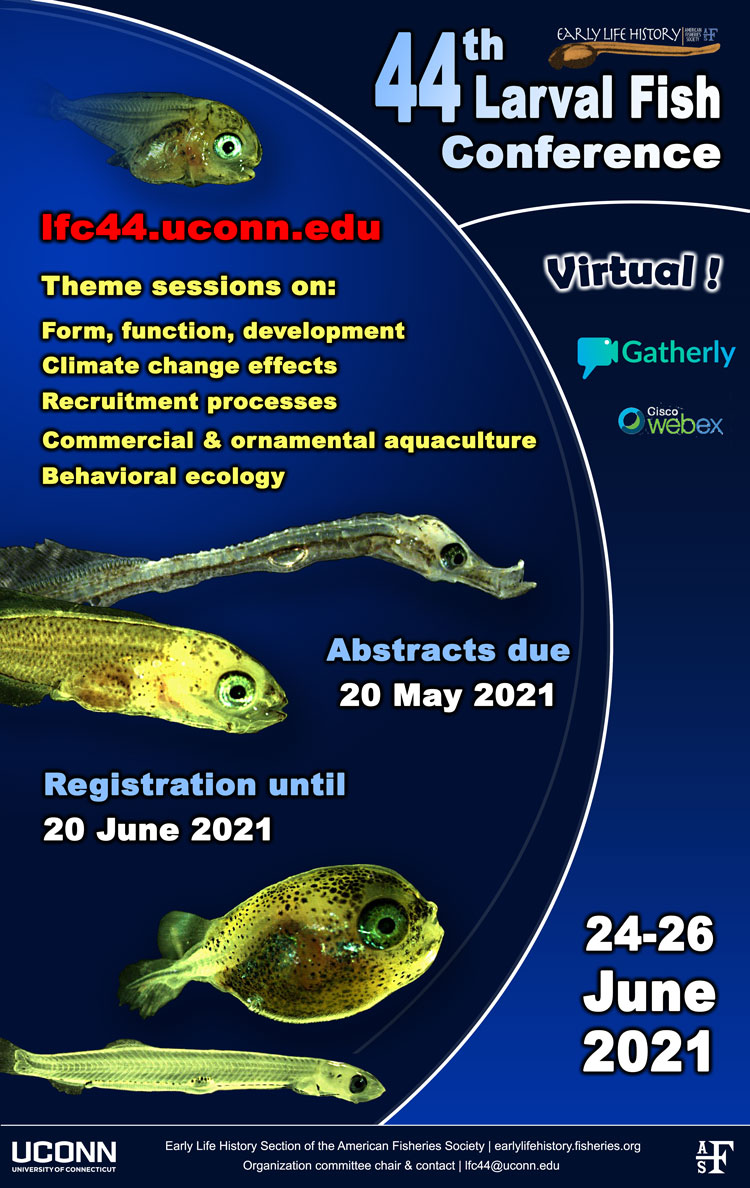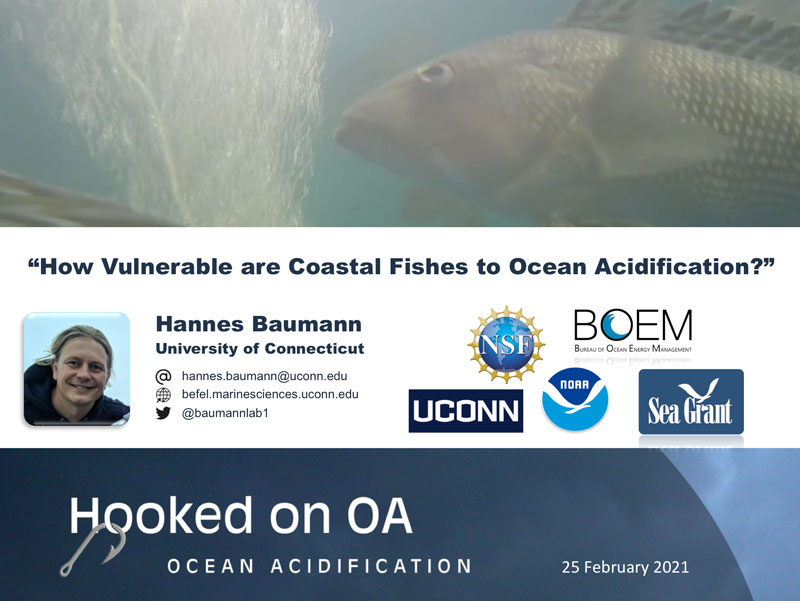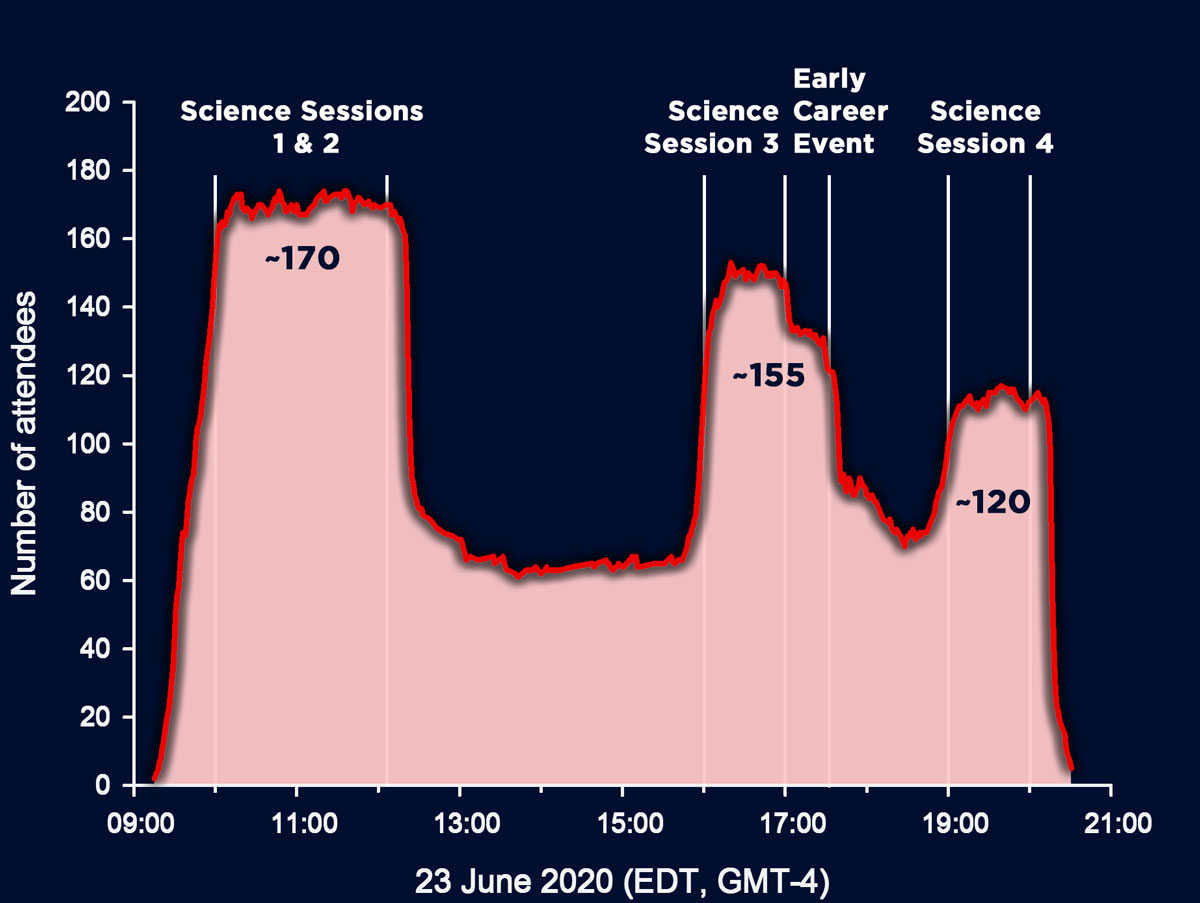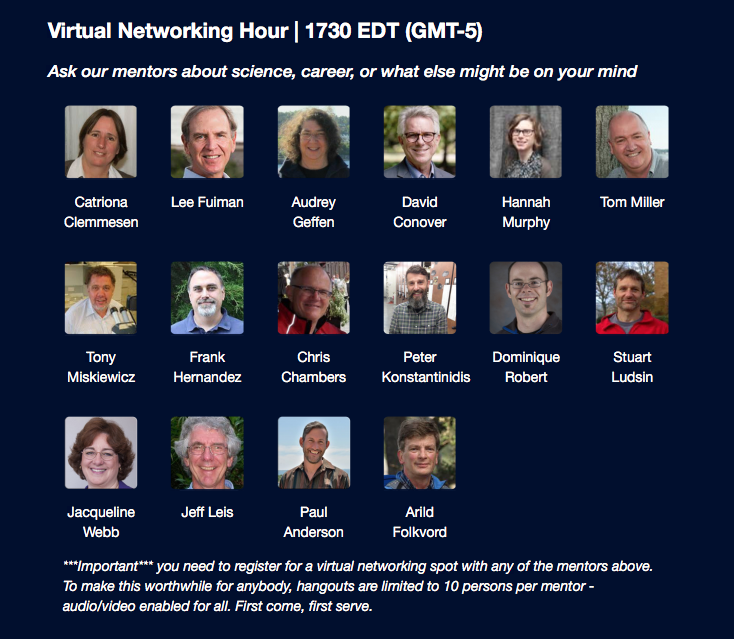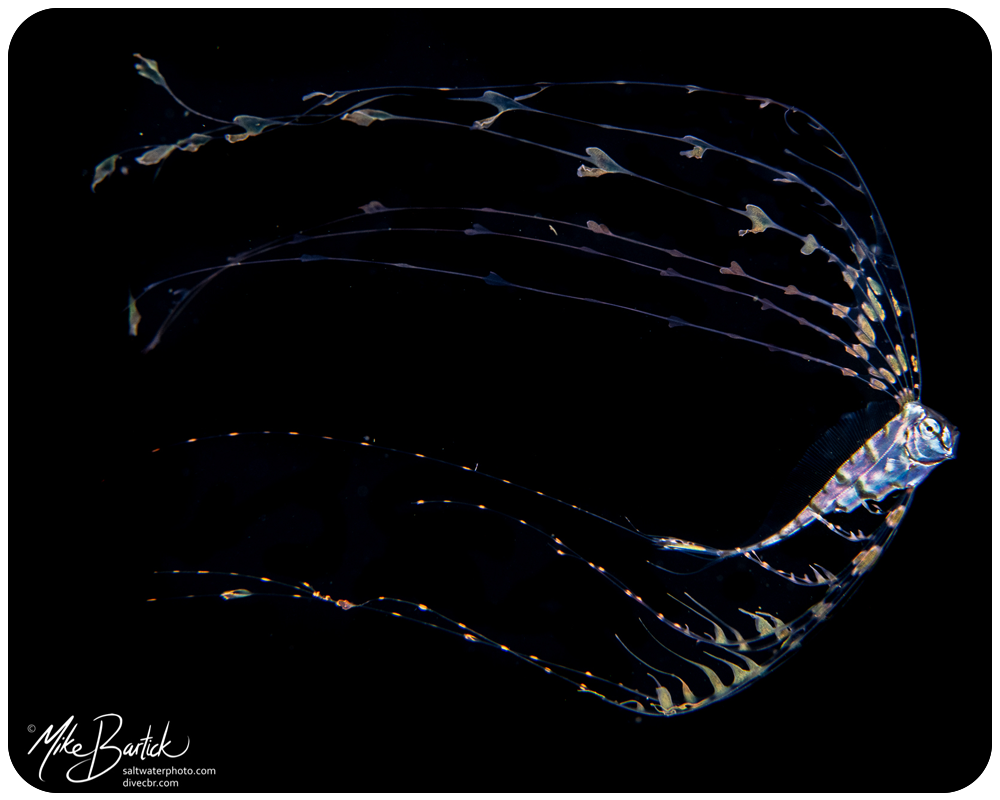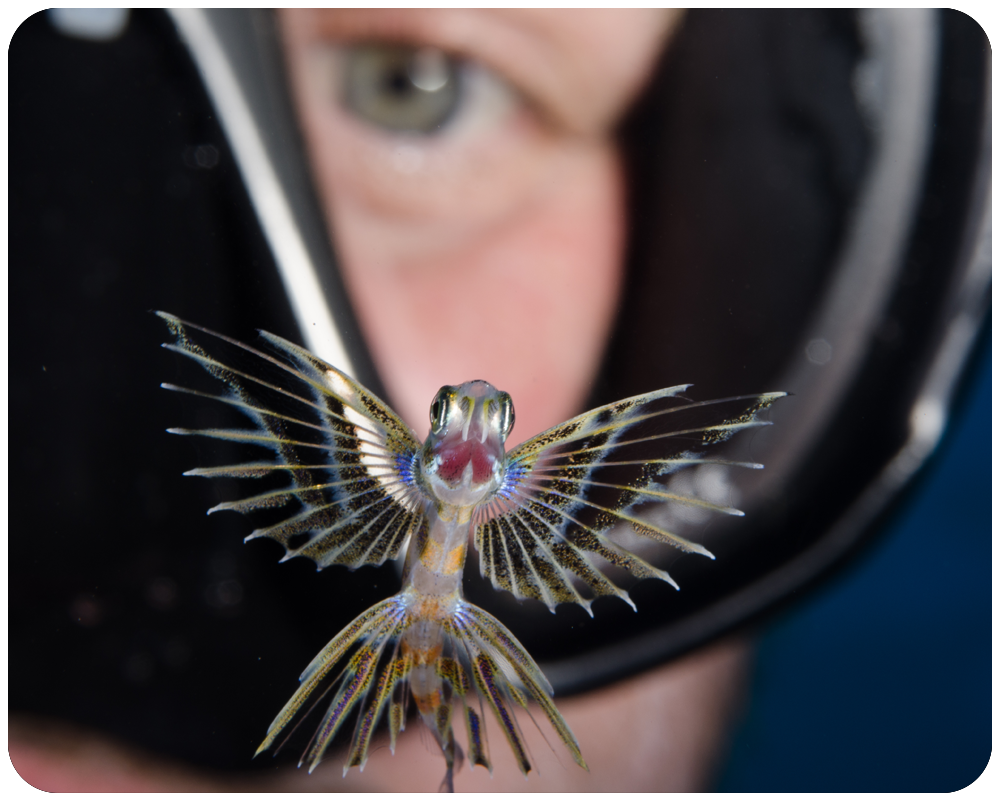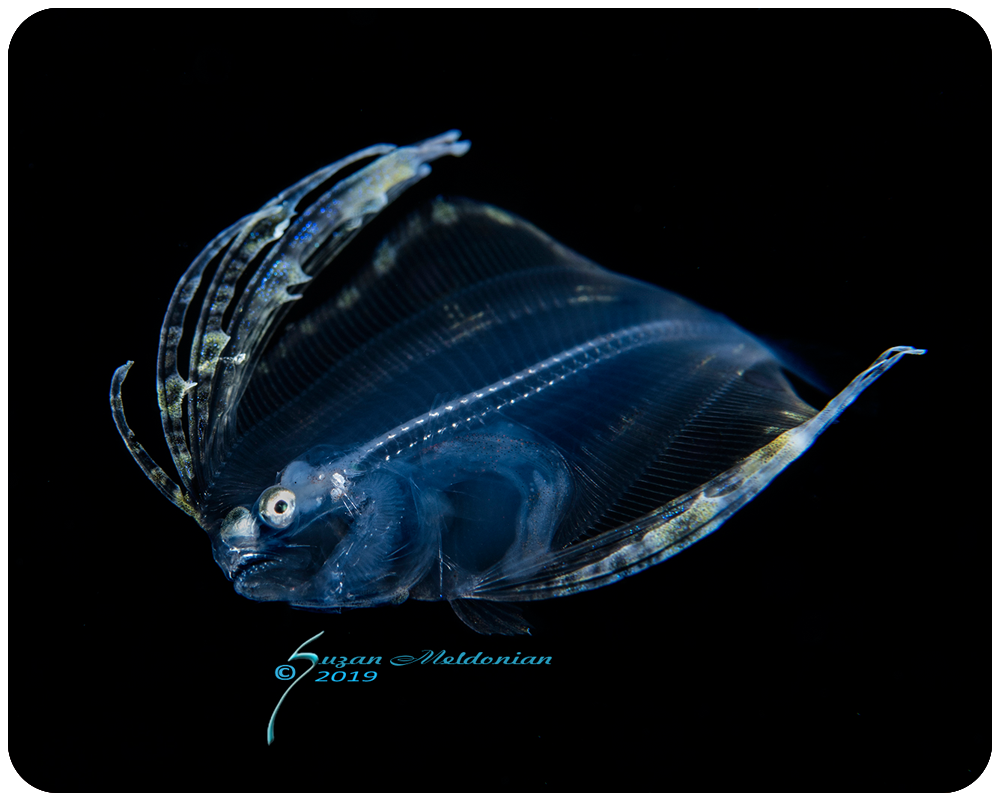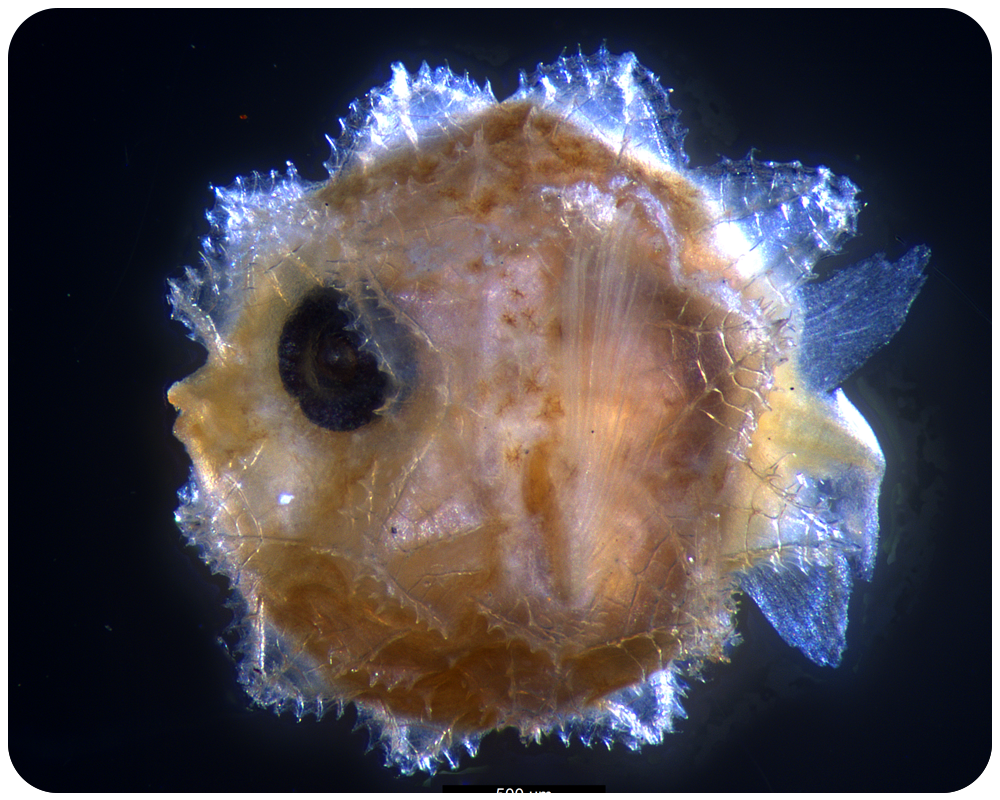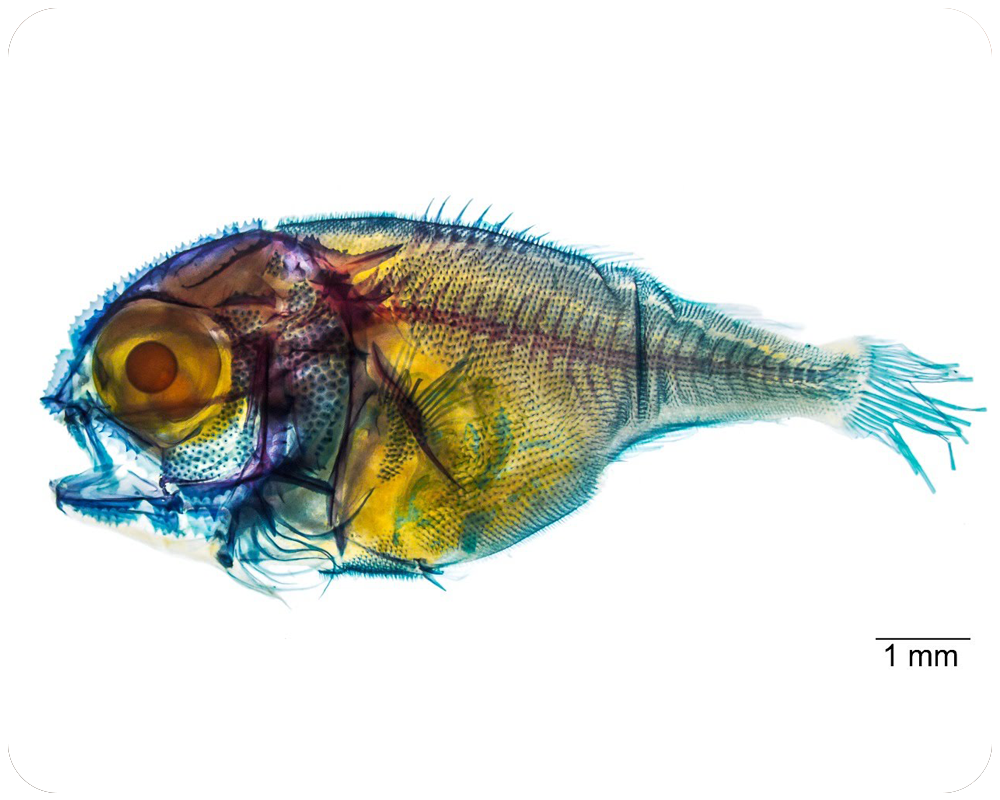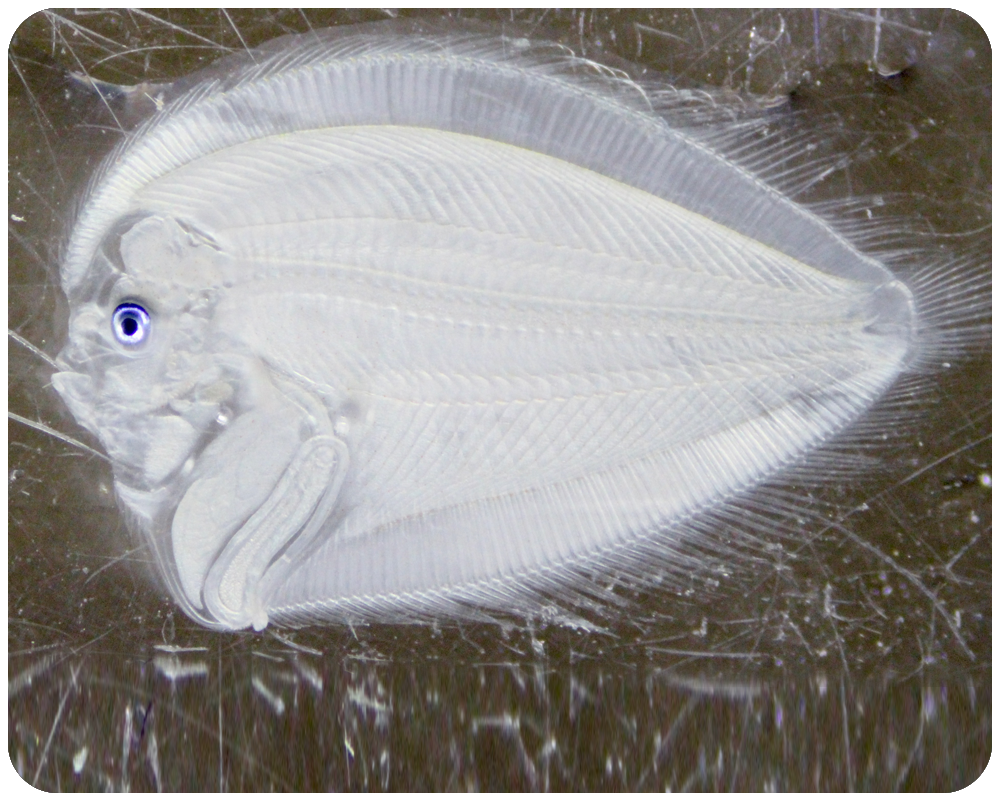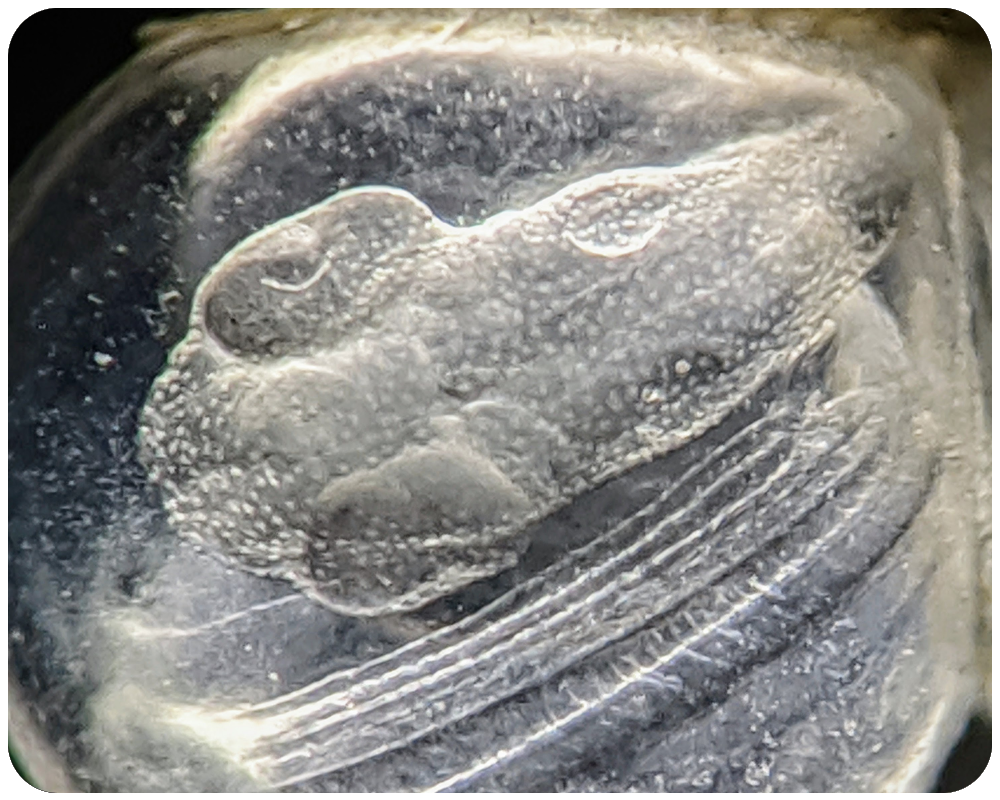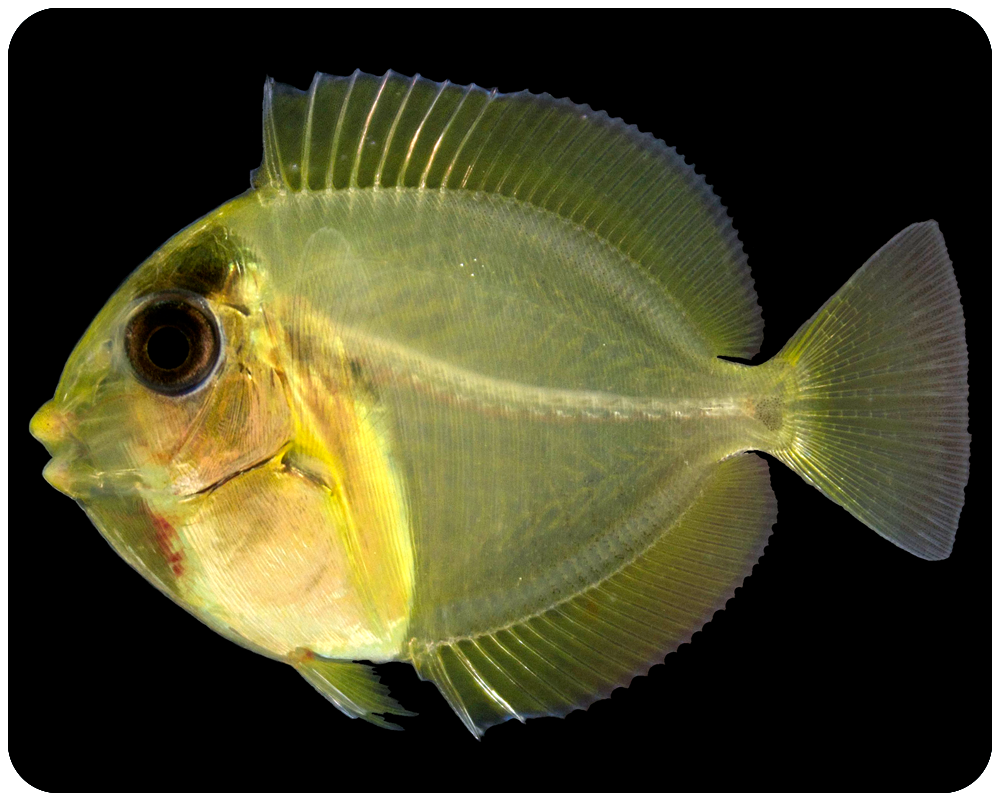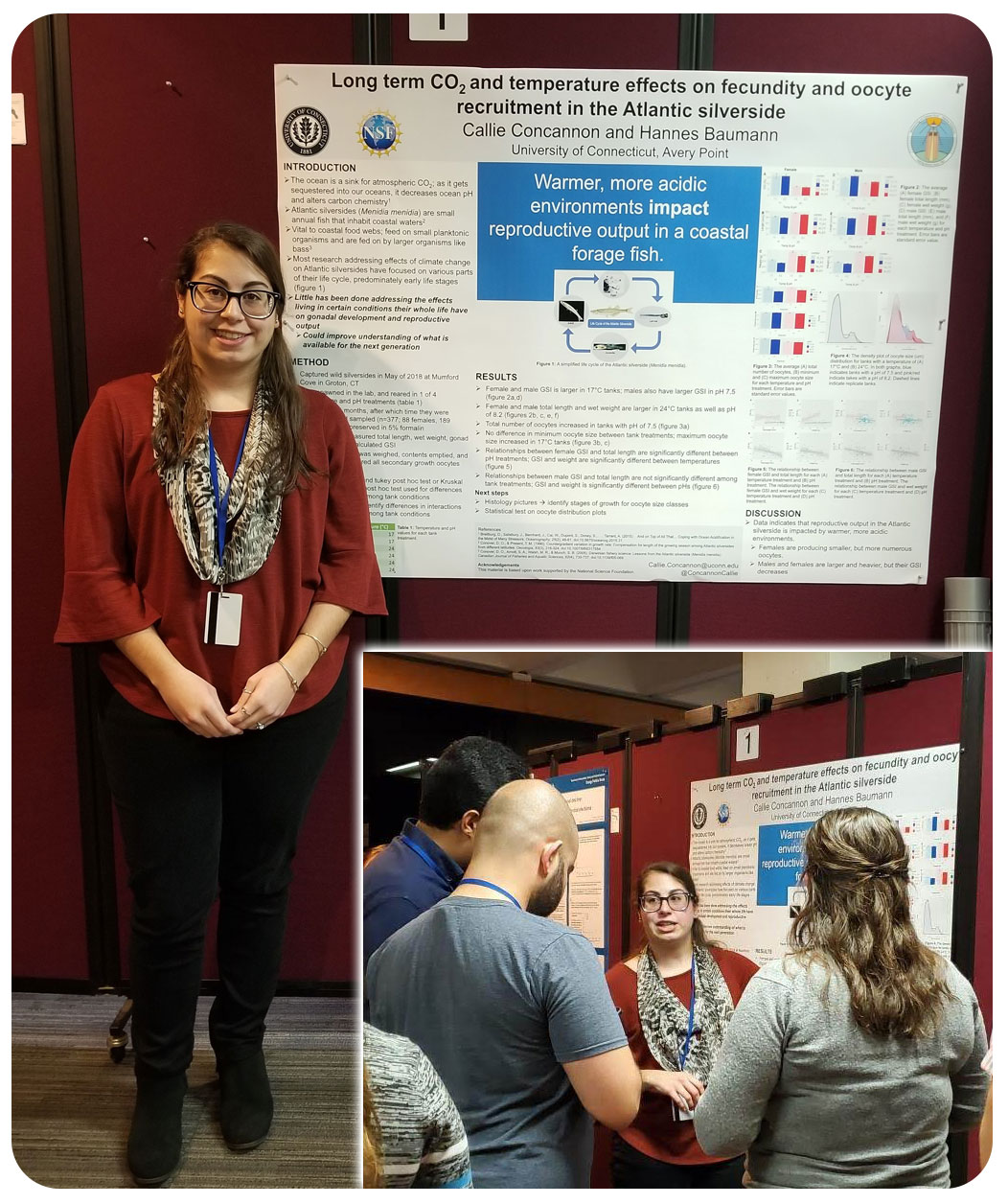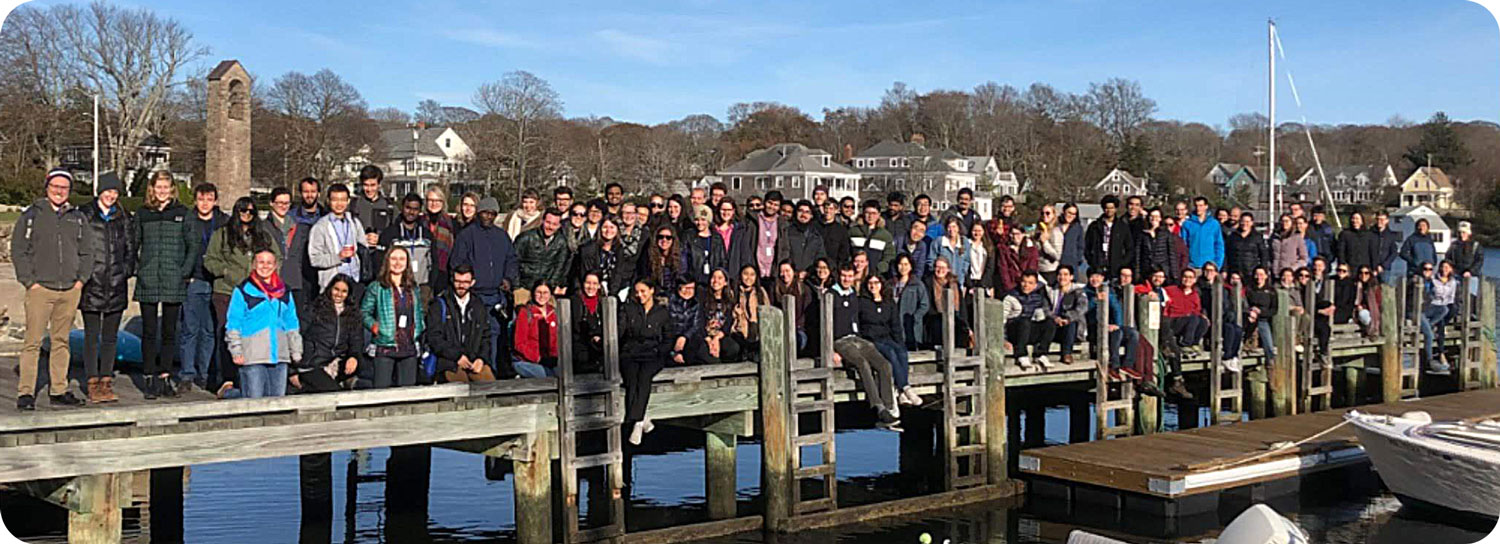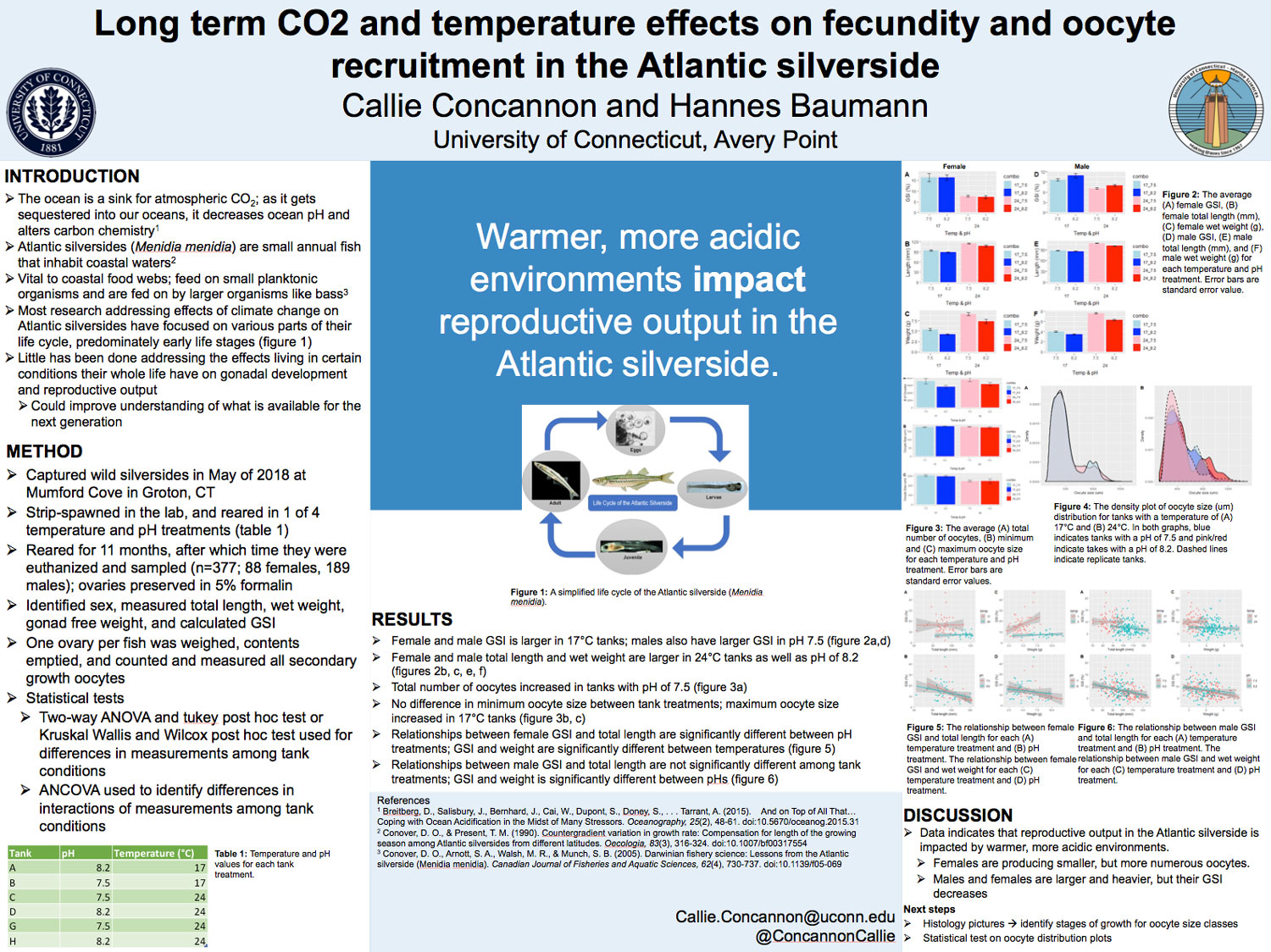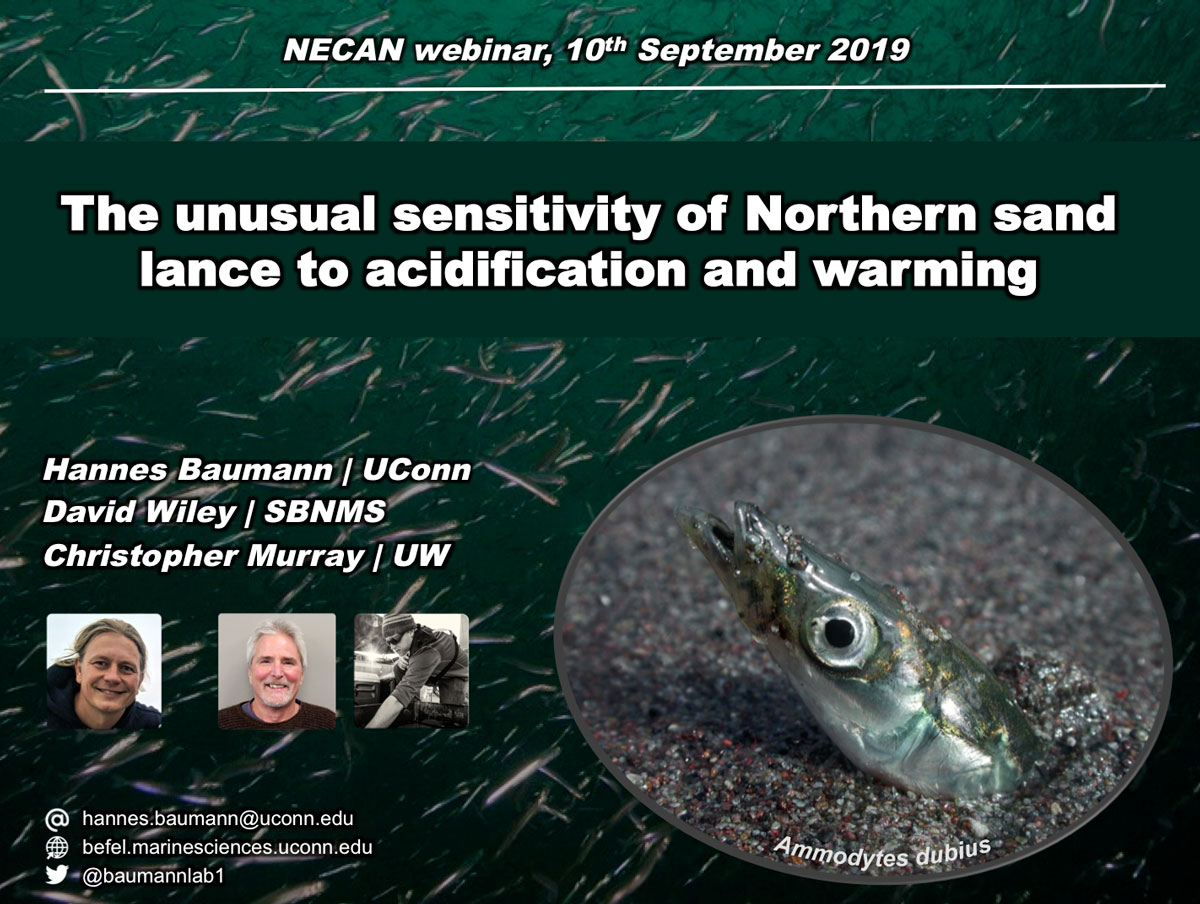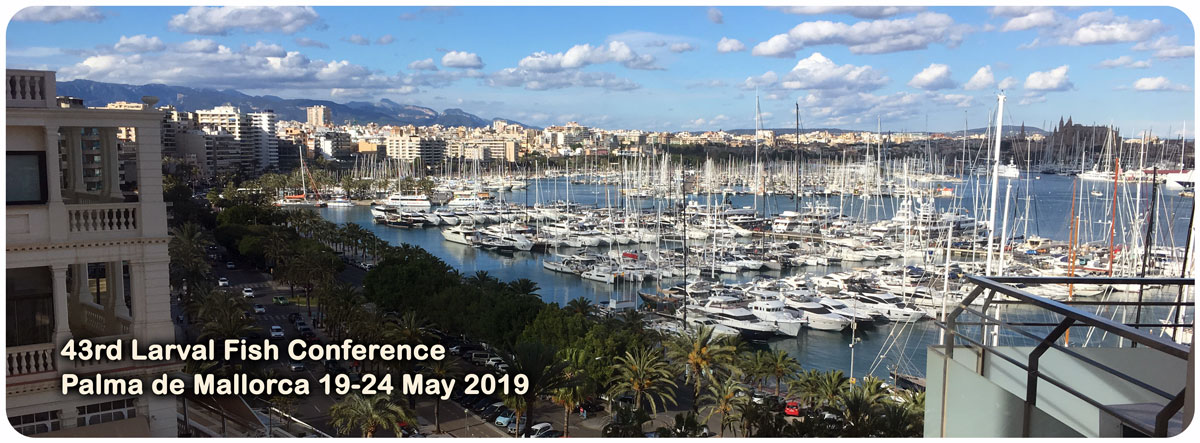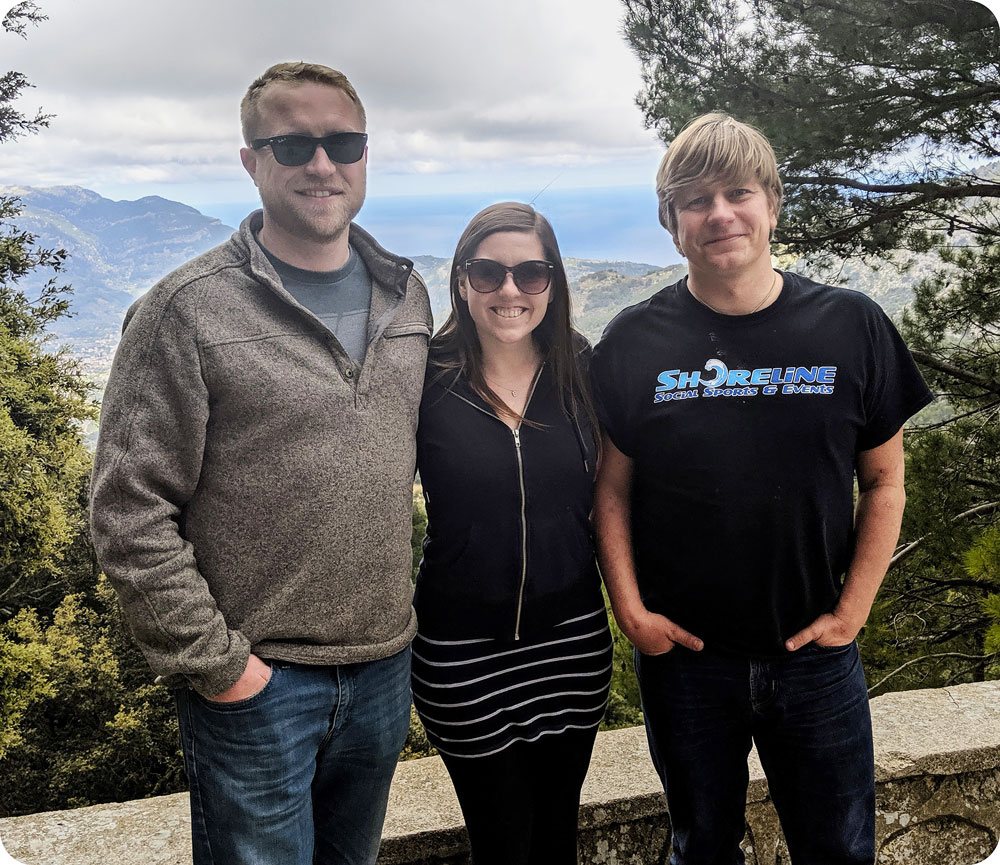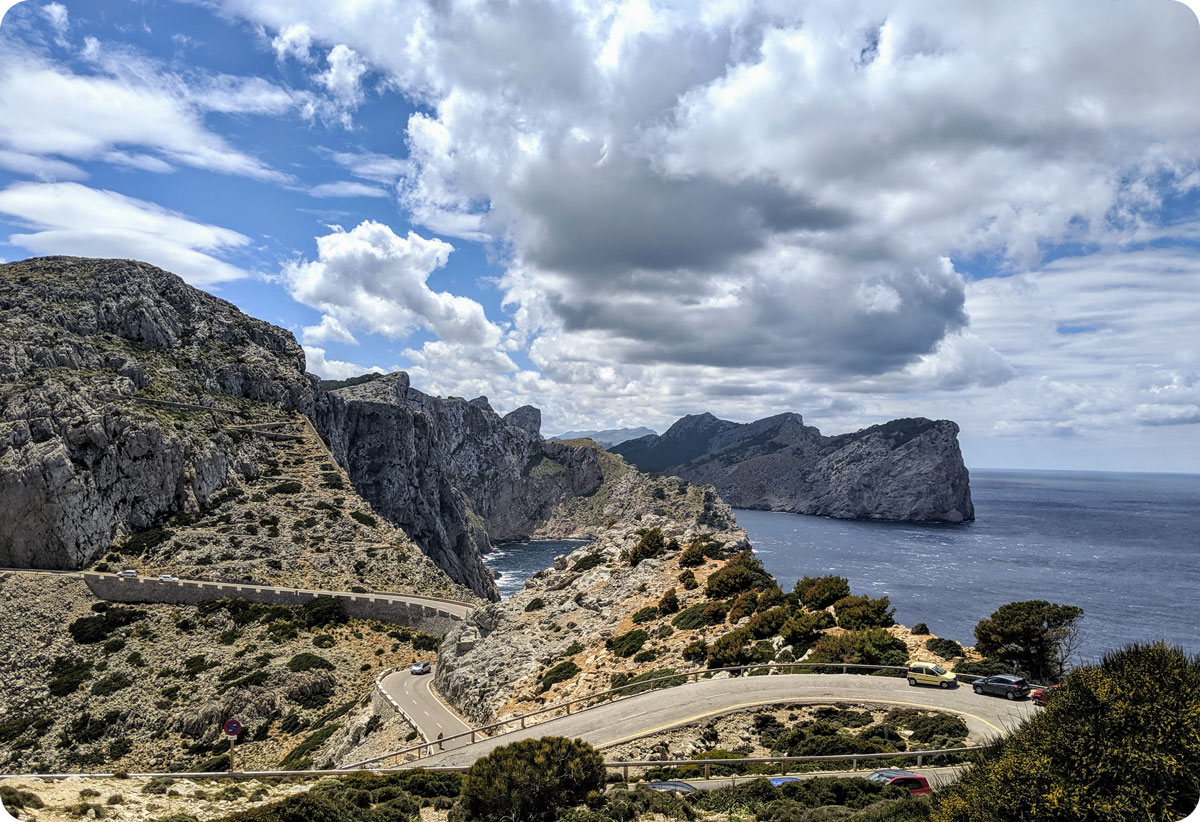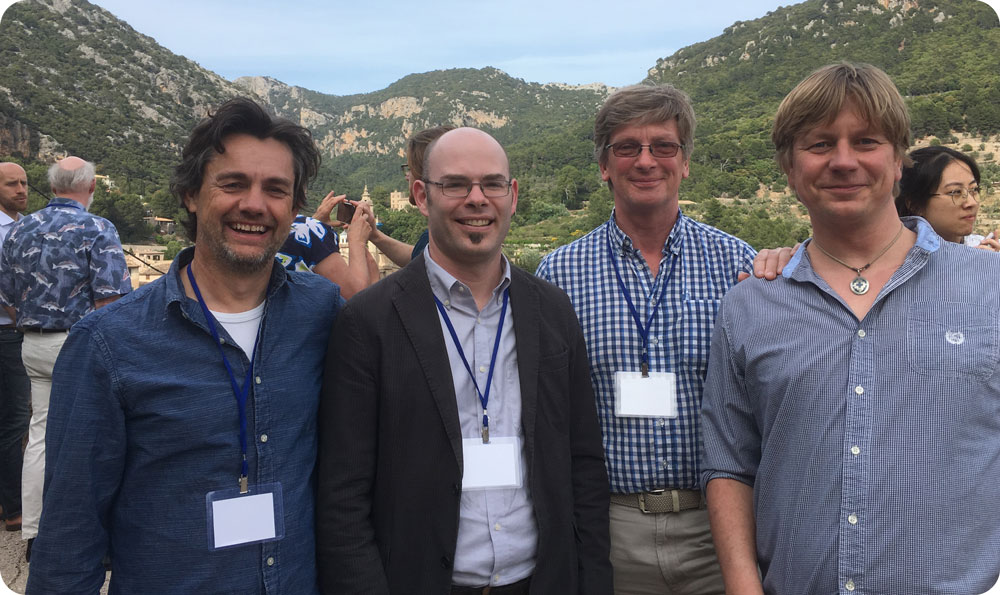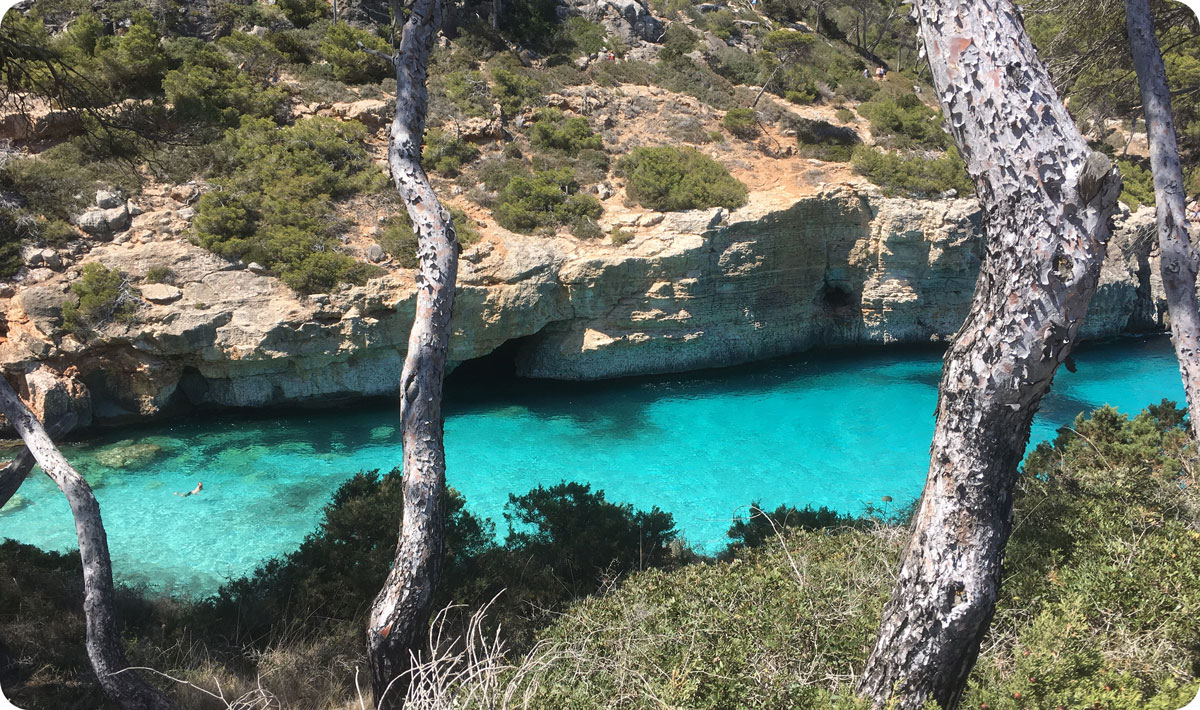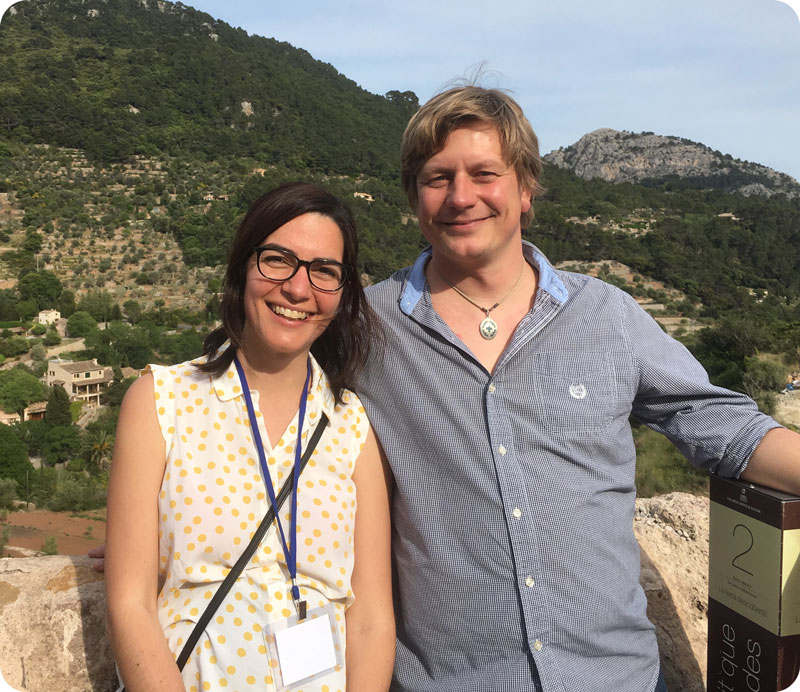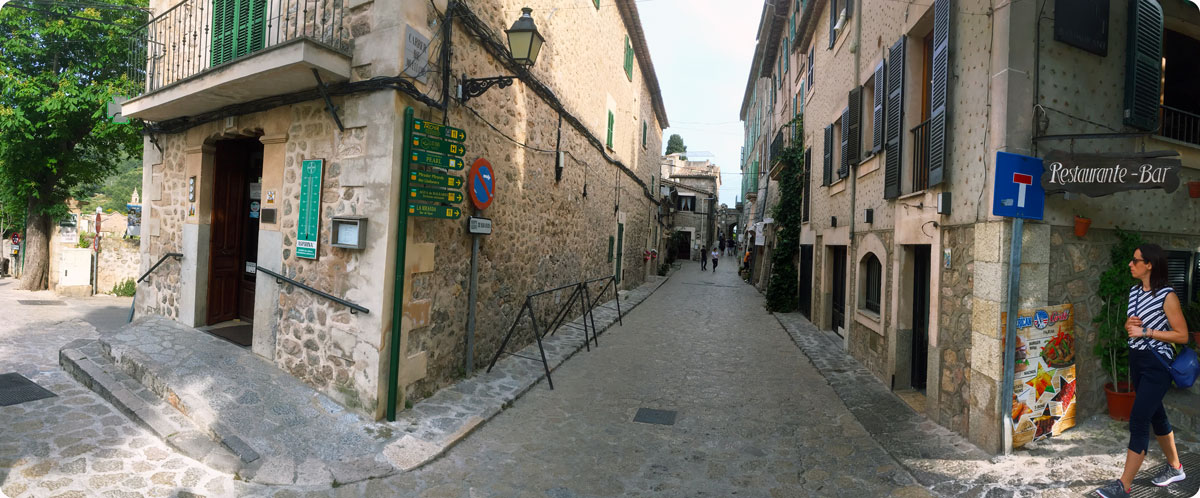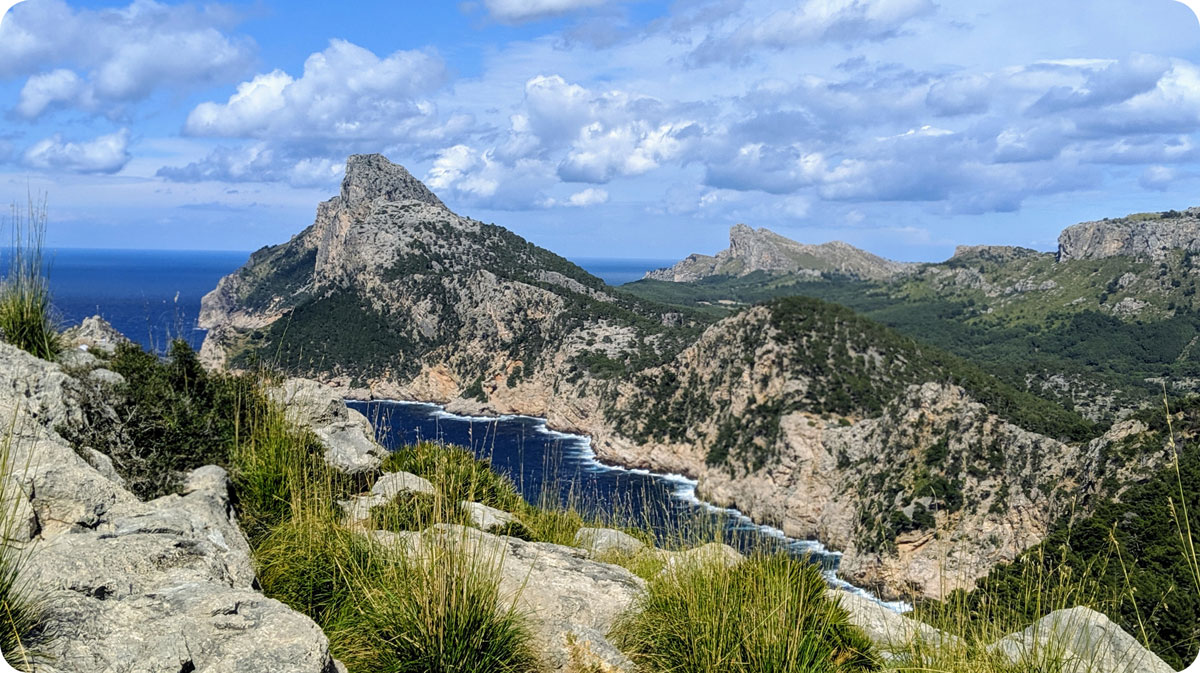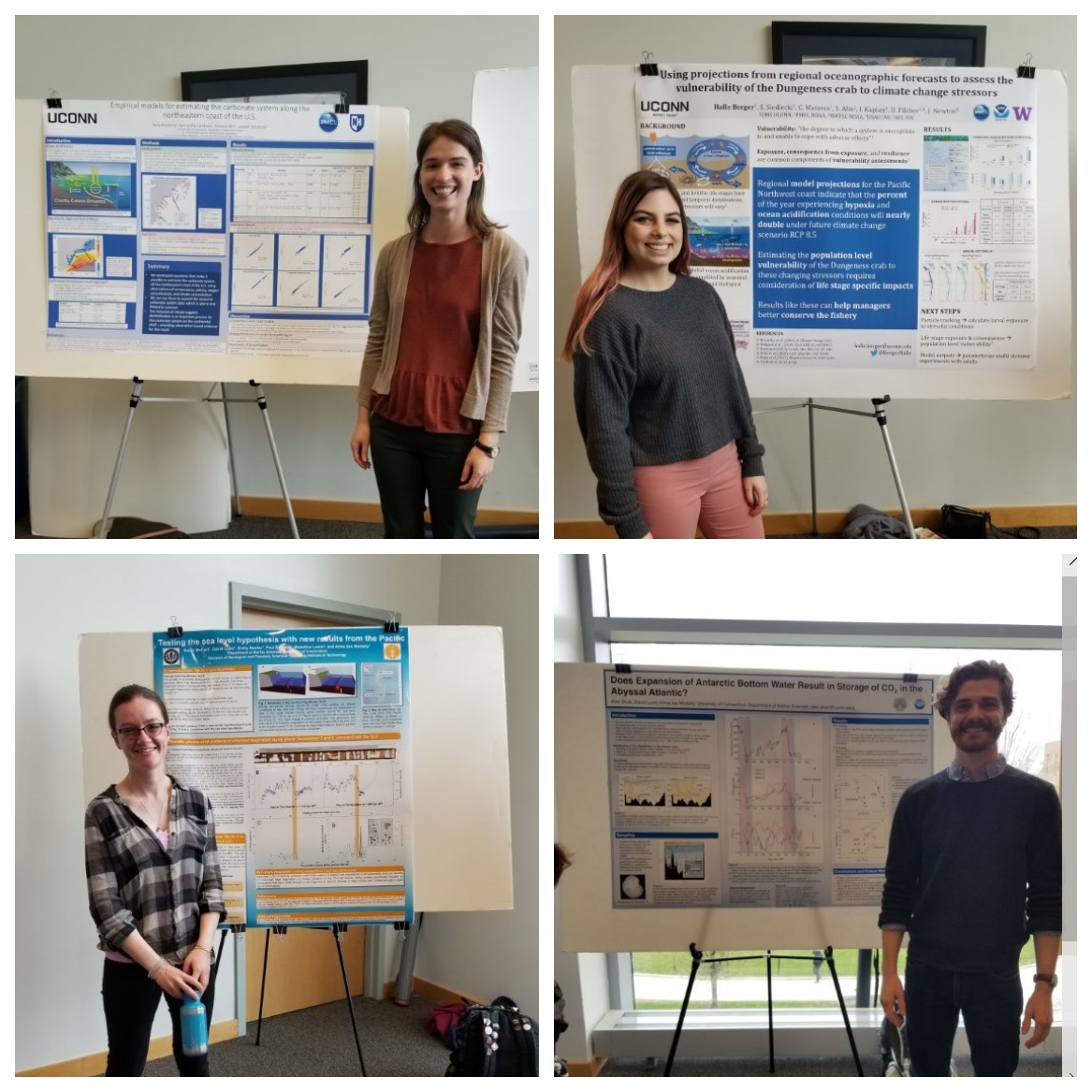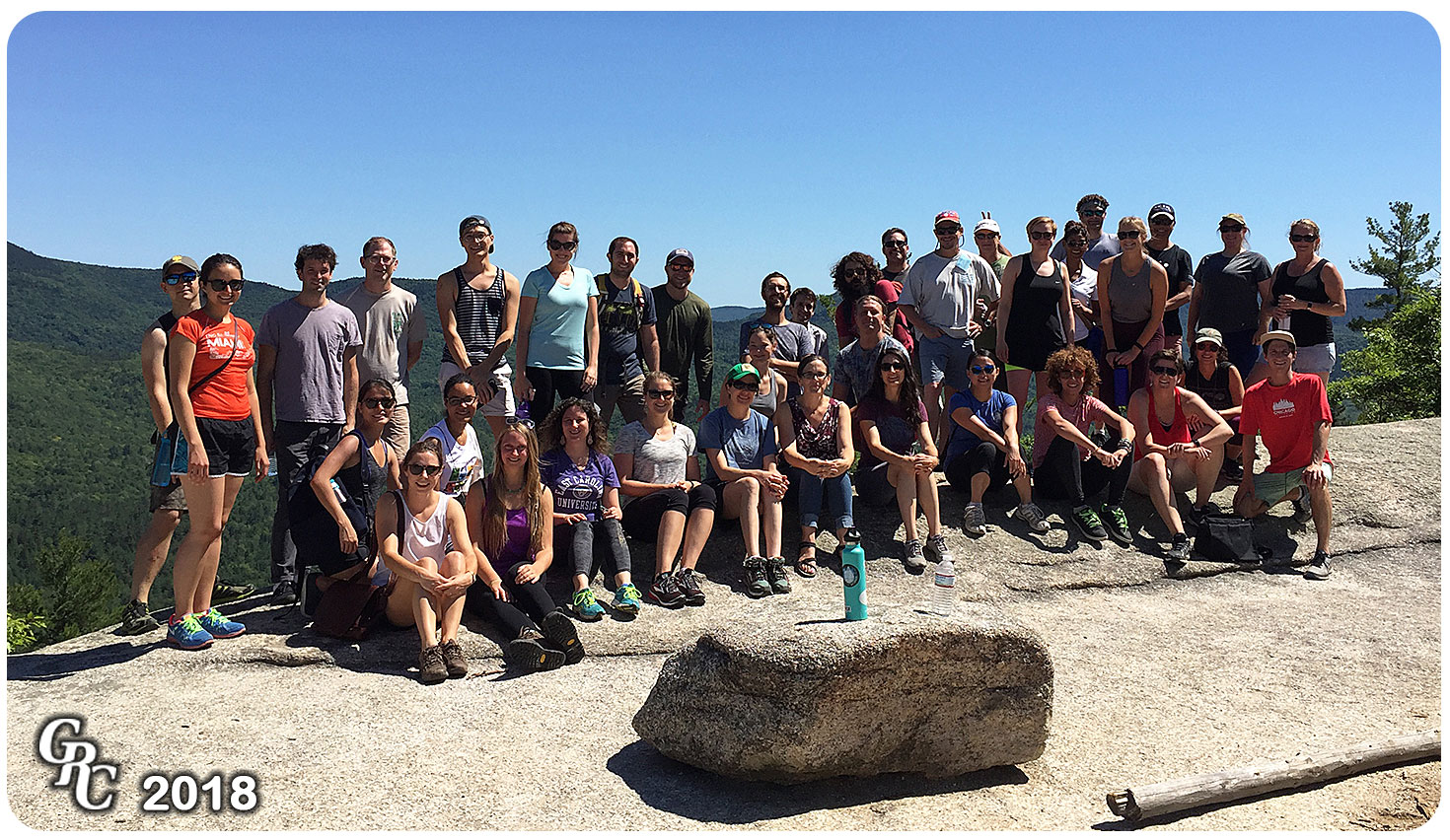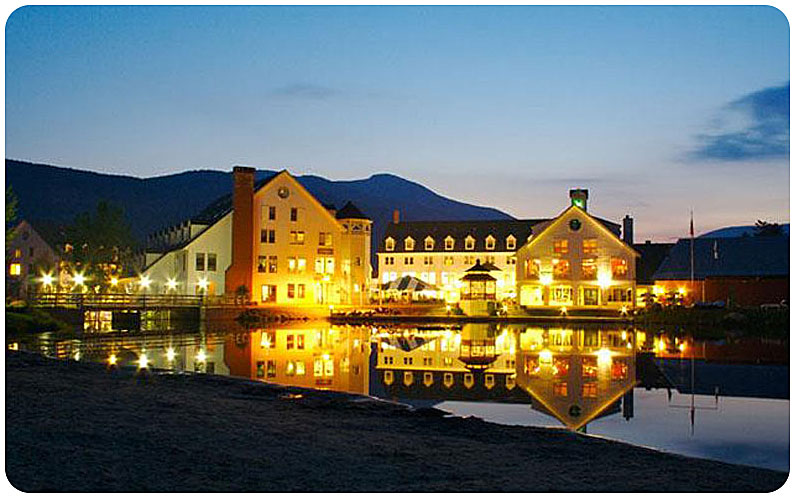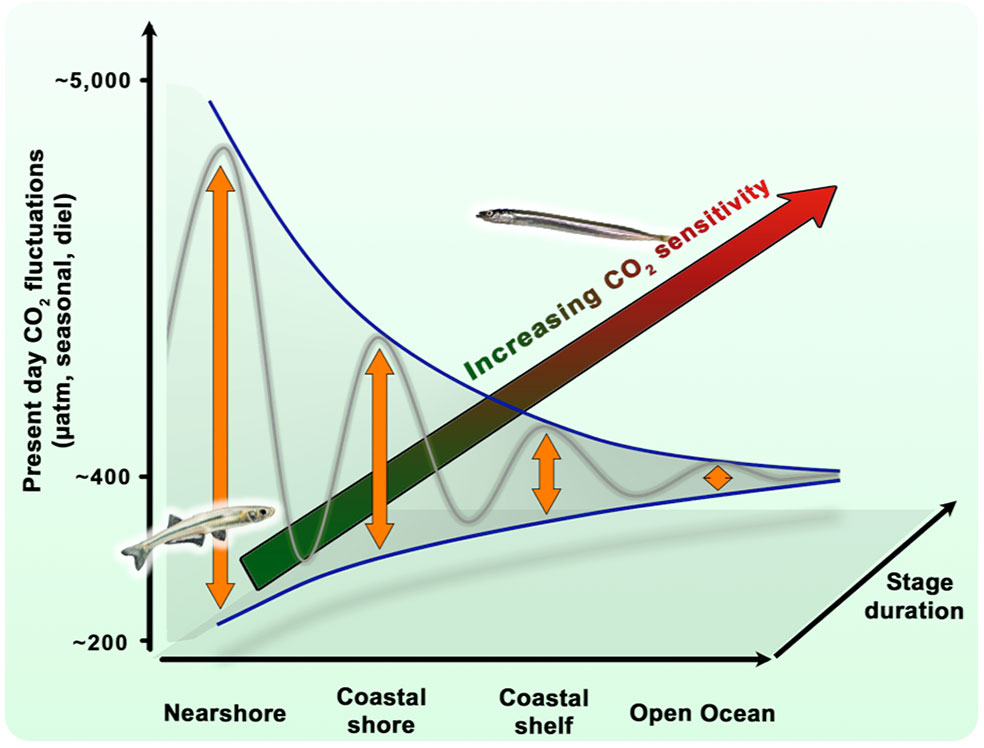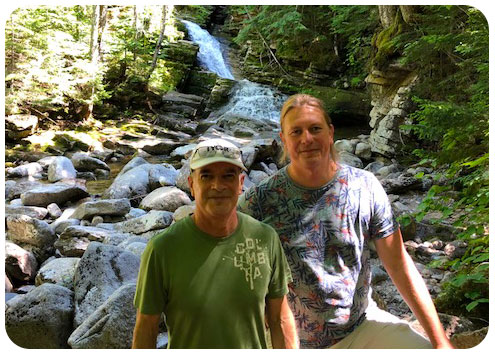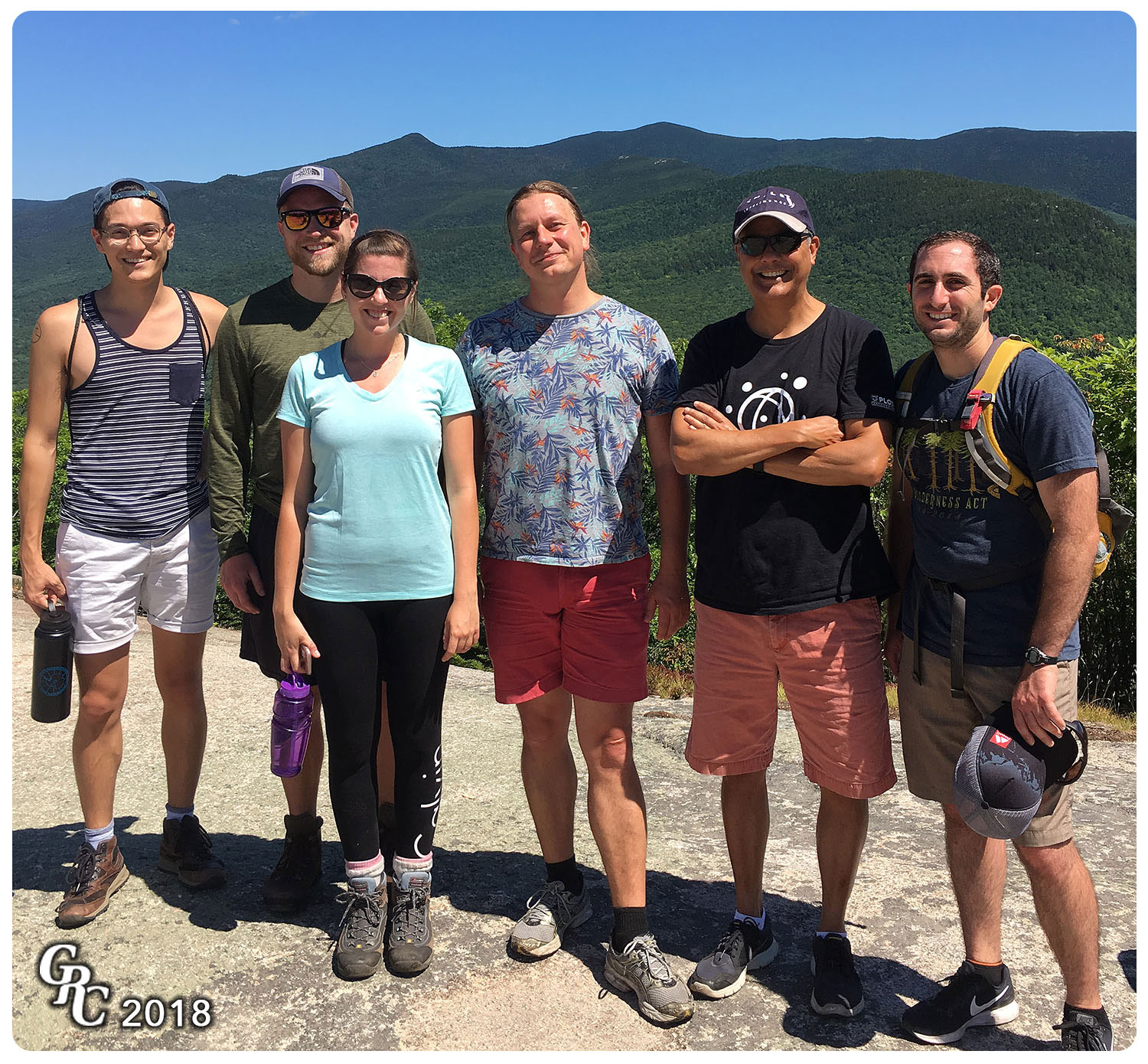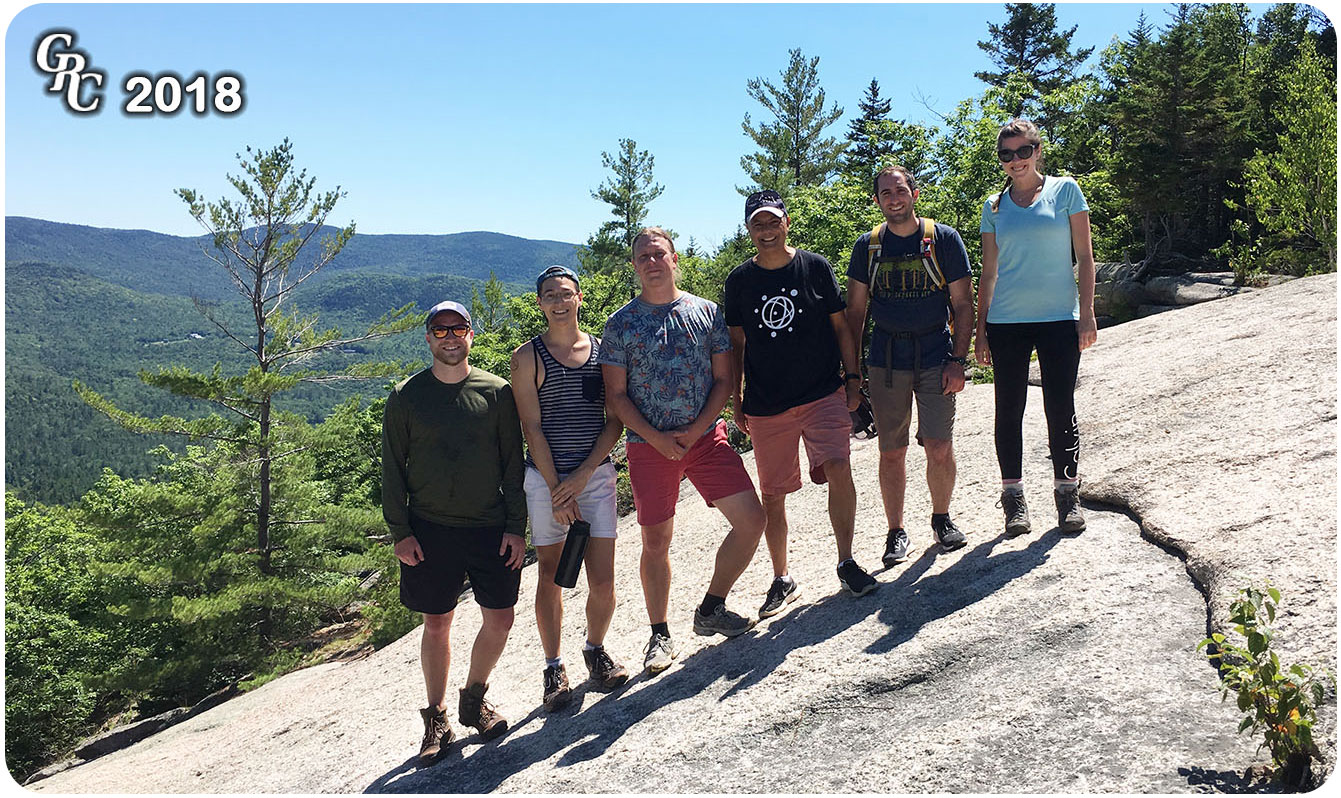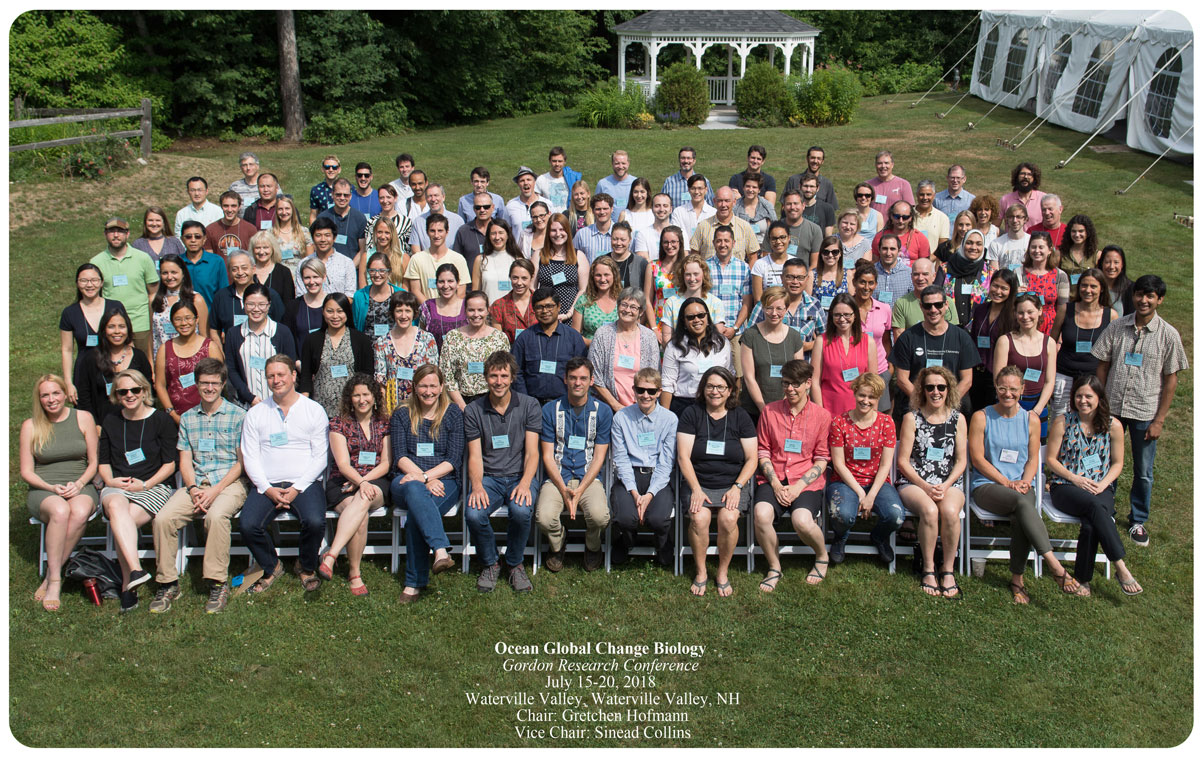4 March 2022. Hannes was the invited speaker at today's Friday seminar of the Department of Marine Sciences. His talk gave an overview of the research highlights of our multi-disciplinary and multi-institutional efforts to better understand basic ecological facts, population connectivity & structure, and the unusually high CO2-sensitivity of sand lance embryos. The remotely given presentation was attended by 62 people, some of which listened in from as far away as Norway!
The talk was recorded and can be accessed via the public link below.
- Baumann, H. 2022. The unusual ecology & climate sensitivity of sand lance, a key forage fish on the Northwest-Atlantic shelf. UConn Marine Sciences Friday seminar. Online. 4 March 2022.
The unusual ecology and climate sensitivity of sand lance, a key forage fish on the Northwest-Atlantic Shelf
No matter how you look at these small, slender-bodied fishes that at times live buried in sediment or emerge as dense pelagic schools, northern sand lance (Ammodytes dubius) easily awe even the most hard-to-impress scientist or naturalist. Their unusual behavior, patchy occurrence, and reproductive timing are paralleled by their extraordinary importance as forage fish that sustain well-known hotspots of iconic predators (cod, tuna, sharks, seabirds, whales) all across the Northwest Atlantic shelf. And yet, despite their recognized role as the ‘backbone’ of many shelf ecosystems, we still don’t understand many basic aspects of sand lance ecology, population structure and their vulnerability to manmade climate change. Over the past years, our lab has been working alongside other US and Canadian research groups on multiple sand lance projects that have produced stunning new insights into these enigmatic fish. This seminar will outline some of the highlights. We discovered that the seasonal growth of these fish relies heavily on the lipid-rich copepod Calanus finmarchicus and showed that after a dormancy period in summer they spawn on Stellwagen Bank for just a brief period at the end of fall. To resolve questions of connectivity between sand lance areas, we performed large-scale Lagrangian drift simulations that suggested areas of high, low and negligible retention of sand lance offspring and showed overlaps with planned offshore wind lease areas. A large collaborative effort succeeded in obtaining specimens from across the entire distributional range (Greenland to Mid-Atlantic Bight), and subsequent whole genome sequencing newly revealed a stark genomic differentiation between northern and southern population clusters. Last, we performed multiple years of rearing experiments on embryos that consistently showed an unusual sensitivity of sand lance to future, high CO2 oceans. When coupled with regional, end-of-century pCO2 projections we estimate that rising CO2 levels alone could reduce sand lance hatching success to 71% in 2100 relative to today. Warming, acidification, and habitat exploitation therefore emerge as key factors lining up against the future productivity of this forage fish, which is so critically important across Northwest-Atlantic shelf ecosystems.
